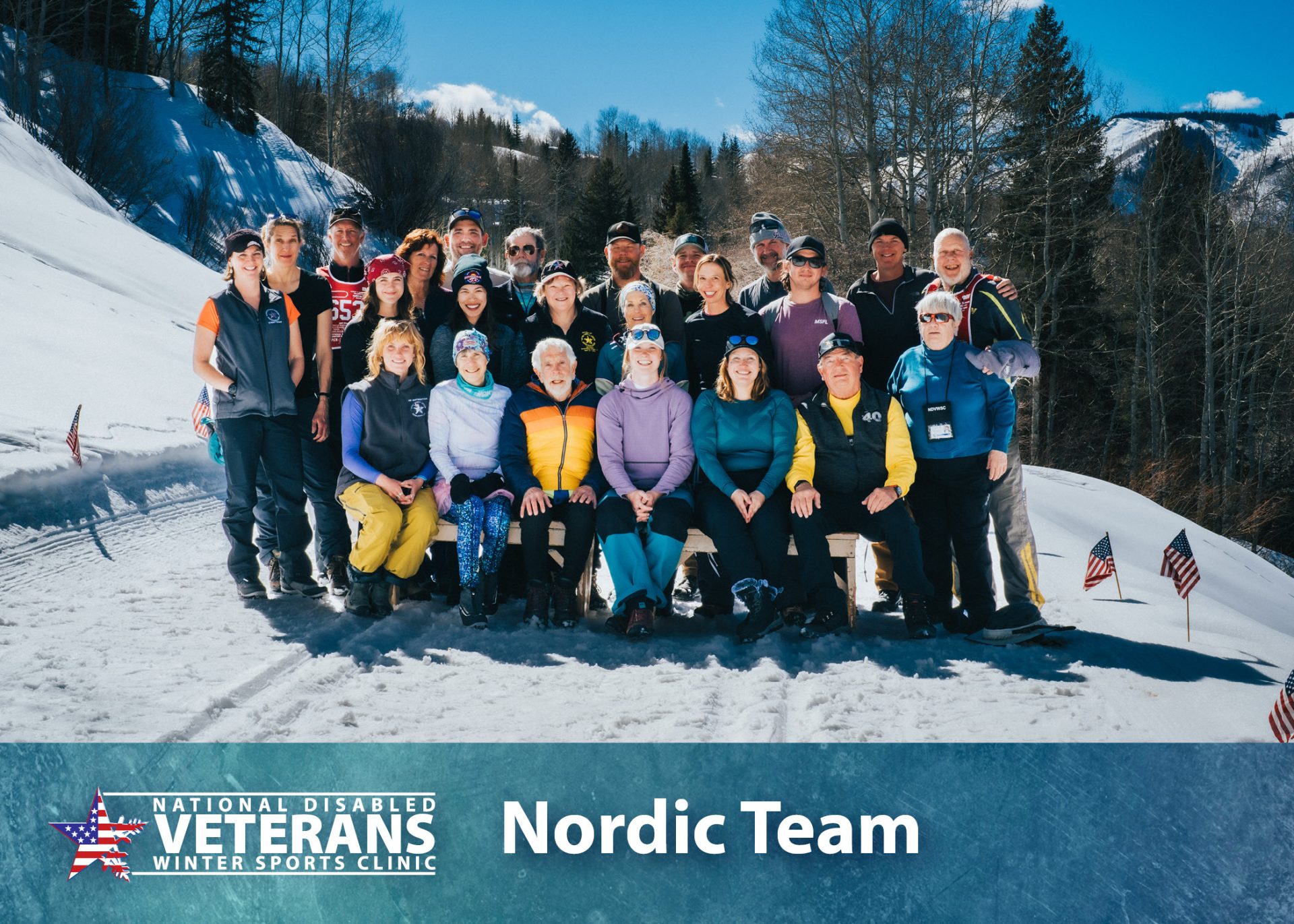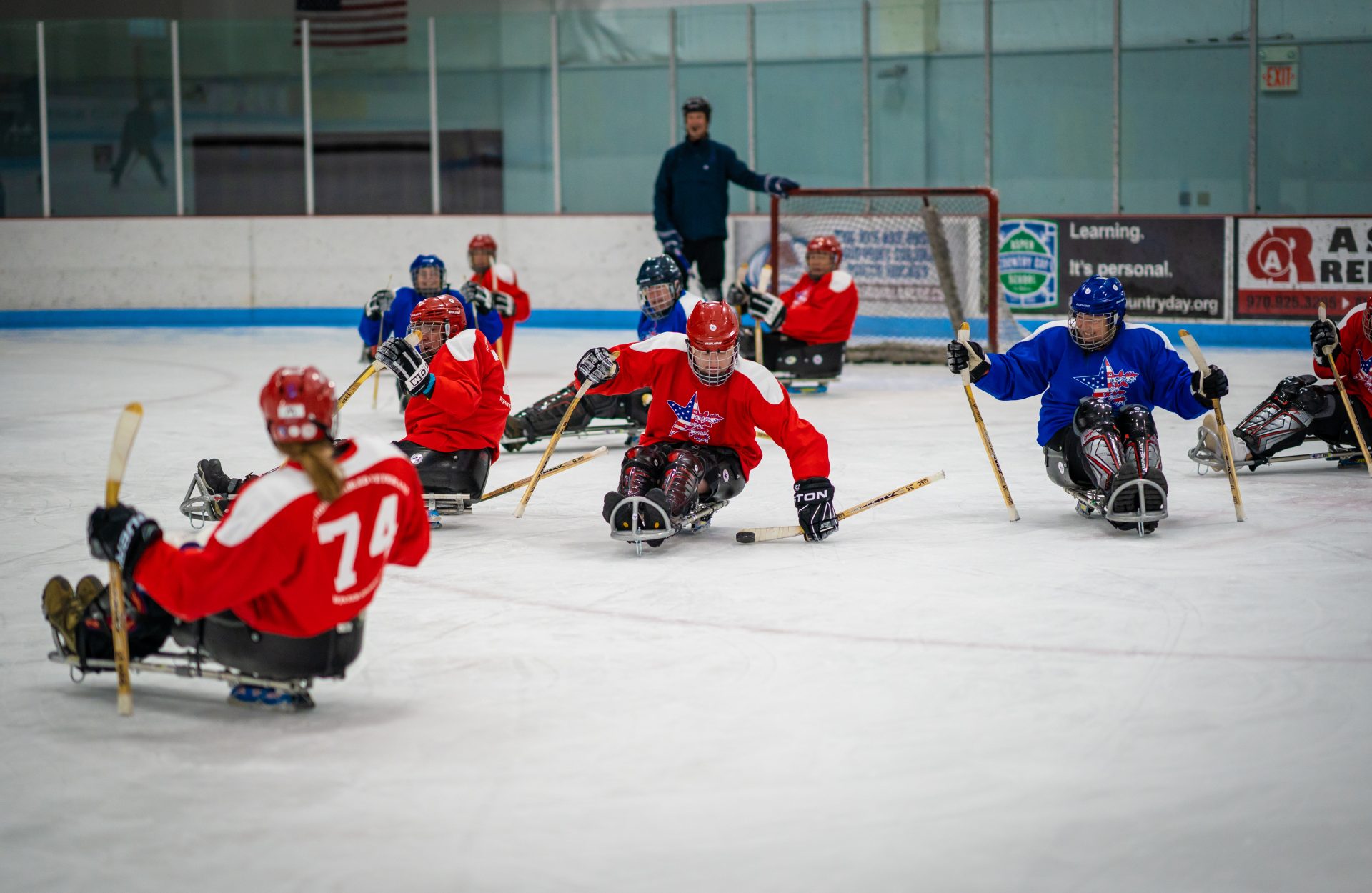
There are many programs and organizations throughout the country that provide support to veterans with disabilities. In 2022, the Veterans Benefits Administration provided more than $112 billion in disability benefits to about 5.4 million veterans and their families. The National Disabled Veterans Winter Sports Clinic is an organization that served 10,000 participants this year with disabilities with the intent to assist veterans to improve their overall quality of life. The Winter Sports Clinic focuses on getting veterans involved in winter sports activities including skiing, sled hockey, and snowmobile riding
The mission of the National Disabled Veterans Winter Sports Clinic is to involve disabled Veterans with spinal cord injuries, amputations, neurological disorders, visual impairments, and other profound injuries and medical concerns in challenging therapeutic outdoor experiences and education. These experiences provide the catalyst that improves overall physical well-being, mental health, self-esteem, community re-entry, and readjustment.
For more than three decades, the National Disabled Veterans Winter Sports Clinic has helped many of our nation’s most profoundly disabled veterans overcome obstacles and challenge their perceived limitations. The five-day event is held in Snowmass, CO, and is sponsored by the Department of Veterans Affairs and Disabled American Veterans, with financial assistance from corporate sponsors and individual donors.
From April 1-7, 2024, the VA and Disabled American Veterans co-hosted the 38th National Disabled Veterans Winter Sports Clinic (NDVWSC). Commonly referred to as Miracles on a Mountainside, the winter clinic includes Nordic and downhill skiing, sled hockey, rock wall climbing, scuba diving, and a wide variety of other sports and educational workshops. It is the largest rehabilitative event of its kind in the world and will host nearly 400 participants this year. Veterans with traumatic brain injuries, spinal cord injuries, visual impairments, amputations, and other severe disabilities are challenged to overcome perceived limitations through adaptive sports programs and education. There are also many other events veterans can compete in such as the Mono-Ski, Bi-Ski/Dual Ski, Three-Track Ski, Four-Track Ski, Four-track skiing, Sighted-Guided Nordic skiing (standup), and Sledge Hockey.
John Wade, or Big John, as he is known to the Winter Sports Clinic community is an Army Veteran with 17 years of service who receives his care at the Cleveland VA Medical Center. In August 2018, the brakes failed on a semi he was driving, and rather than crushing the cars in his path, he swerved off the road. Seven weeks later, he regained consciousness and discovered he was missing his left leg below the knee. Four suicide attempts later he made a conscious decision to practice self-love and decided he needed to either “be busy dying or be busy living.” Wade said that he is honored to be part of this process and looks at it as helping other people who have had amputees. He has even written two motivational books since his accident:
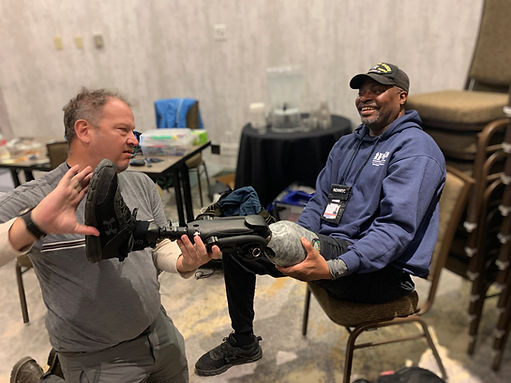
Wade was at the Cleveland VAMC when he was approached by a researcher who was developing an experimental treatment for amputees. In November 2022, Wade was implanted with 64 electrodes in his left thigh with the hope that it would pick up his brain’s electrical signals for movement. The experimental research is being conducted by researchers from the Massachusetts Institute of Technology (MIT) and Case Western University, in conjunction with the Cleveland VAMC.
Recently, he had the opportunity to test a prototype that plugged into his electrodes, and for the first time in years, he experienced the feeling of his foot hitting the ground. “It brought tears to the eyes of everyone in the room,” Wade said. He said that his balance is much better and can think about other things while walking instead of solely focusing on the act of walking itself. Wade said he would receive a robotic limb that his brain could control. The robotic leg will be able to function by Wade articulating the different joints in his leg just by thinking about it in his mind. This is something that has never been done before with someone with an above-the-knee amputation.
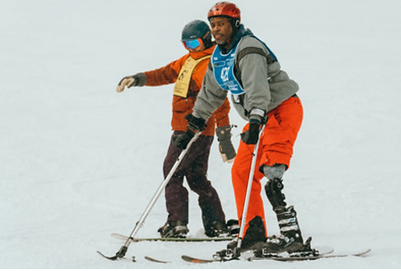
Wade participates in activities now that he never did before his accident and amputation. He never went skiing before the accident and he credits his recreational therapist, Patricia Whitecotton, with getting him involved in community-related events even though sometimes he felt some hesitation. Wade said he gets “Pattied” into doing things to keep him active and admits that more times than not, he enjoyed the activities she recommended. “I remember laying in the bed after the accident and realized that this was going be the rest of my life and I can either get busy dying or get busy living,” Wade said. Wade admits that he is a competitive person and does not like when someone tells him that he cannot do something. Wade is a living testimony to the incredible difference that advances in adaptive technology can make in the lives of Veteran amputees.
Airman 1st Class Lauren Arduser (US Air Force) is participating in the 2024 National Disabled Veterans Winter Sports Clinic for the second time. She was in a severe car accident that left all four limbs paralyzed and her neck broken, however, her language skills and cognitive abilities weren’t affected. Military doctors put her in a medically induced coma for several weeks and didn’t expect her to survive. She was originally told she would never walk again, however, with the help of her therapists, she can now walk with some support two years after her accident.
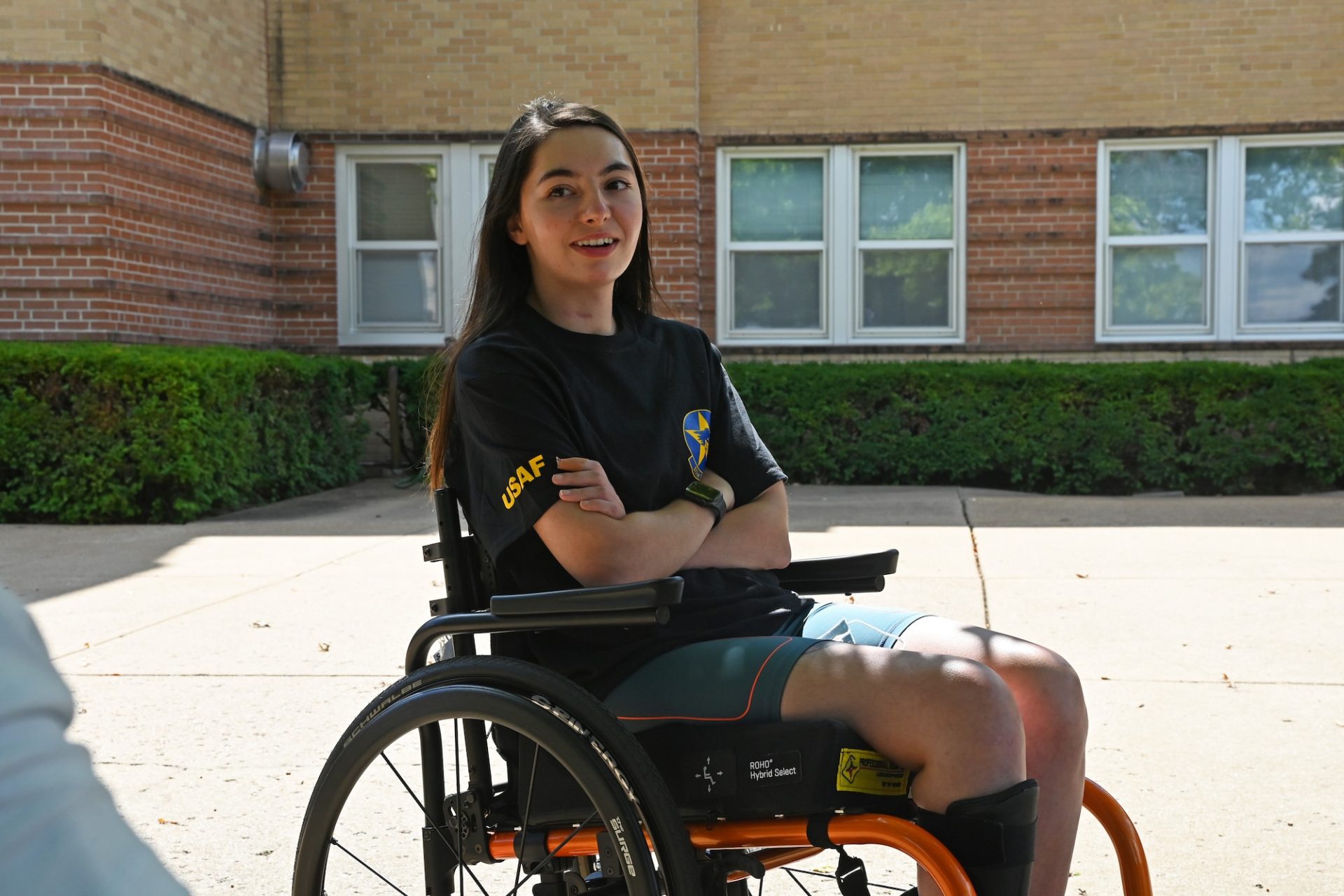
In the beginning, Arduser was not able to dress herself, get out of bed, feed herself, or shower herself. The physical therapy at first focused on fine motor skills training to get her back to her base level. Now she is focused on strength training to build endurance so she can do activities longer. One of those things was learning to walk again. Arduser said she can walk with the assistance of a walker, a cane, or someone to hold her arm for balance. She also requires a knee brace to stabilize her leg to walk. “I essentially went from not being able to sit up in bed, to now if I wanted to, I could technically walk,” Arduser said.
Arduser never skied before her accident and said her recreational therapists recommended participating in the Winter Sports Clinic last year. The event attracts a lot of people and provides a great atmosphere for disabled veterans to compete in winter sports events. “I thought it was great, I met a lot of great people, and learned a lot of great skills,” Arduser stated.
Meeting new people with similar disabilities can make it a little easier for people going through the rehabilitation process. The only person Arduser knew when she went to the Winter Sports Clinic for the first time was her recreational therapist. Veterans have a way of connecting, especially veterans with disabilities. “I came out of it with so many different phone numbers and I still talk to them even today,” Arduser admitted. Last year she learned to ski for the first time in her life using the bi-ski/dual ski.
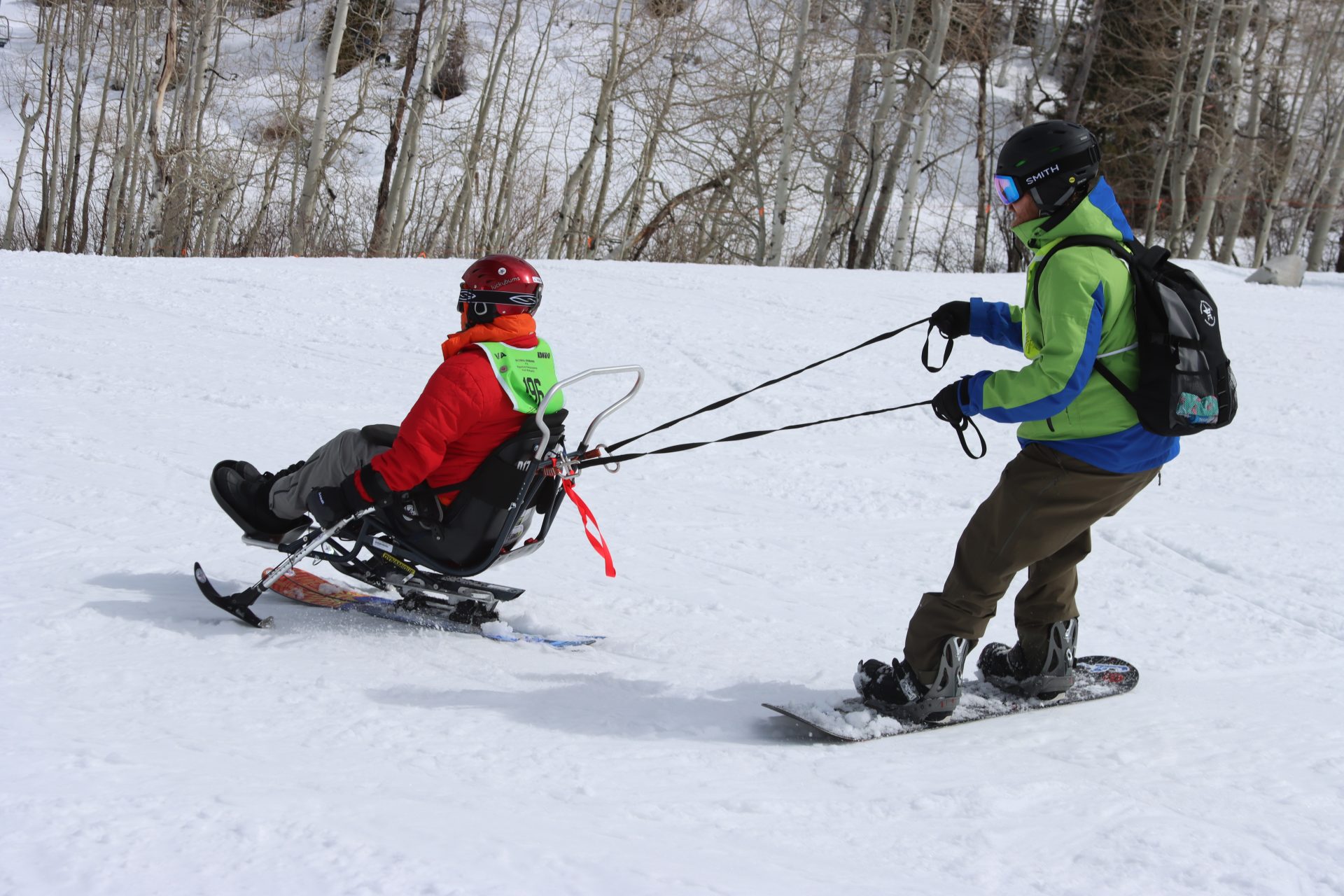
The bi-ski/dual ski was developed for individuals who ski in a seated position. A bi-skier/dual skier sits in a molded seat above two specifically designed skis. The two skis offer a wider base for improved balance. The bi-ski/dual ski can be skied independently with two outriggers. Most bi-skis/dual skis have fixed outriggers (similar to training wheels on a bike, which must be tethered), a handlebar may be used for novice skiers or for skiers who do not have the grip strength to hold the outriggers safely. The primary difference between the bi-ski and the dual ski is that the dual ski has a shock absorber, designed so skiers can ski more dynamically than those skiing on the bi-ski.
Going skiing for the first time can be scary and there probably is not a single person on earth who did not fall their first time skiing. “The first time I skied down mountain I broke one of the outriggers on my arm,” Arduser said with a laugh. At the Winter Sports Clinic they train the athletes for two days on learning how to ski and learning to fall is important. Adruser said that she was not afraid to fall because it was something she had to be prepared for and the clinic did a great job at teaching. Looking back at her first experience skiing and being at Snowmass, Co for the Winter Sports Clinic was special for Arduser. “I have never been in the mountains before, I have never skied before, and it was really awesome,” Arduser added.
Veterans like Wade and Arduser are two of many disabled veterans who receive help and support every year from the National Disabled Veterans Winter Sports Clinic. Having the opportunity to participate in activities is something that all disabled veterans want to do. The ability to accomplish daily tasks that were once simple for them has now become things that require thought, desire, and strength. Programs like the Winter Sports Clinic give disabled veterans the chance to live their lives to the fullest.
For more information visit the National Disabled Veterans Winter Sports Clinic website.
